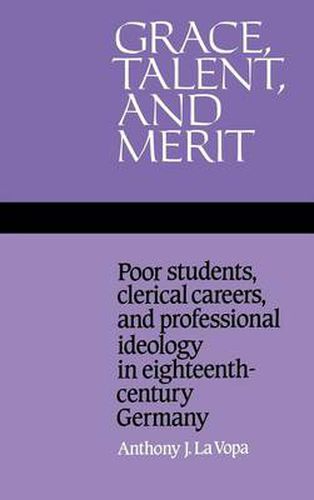Readings Newsletter
Become a Readings Member to make your shopping experience even easier.
Sign in or sign up for free!
You’re not far away from qualifying for FREE standard shipping within Australia
You’ve qualified for FREE standard shipping within Australia
The cart is loading…






Poor students experienced a kind of upward mobility that was not uncommon in old-regime Europe. They were also objects of controversy. and as such they reveal the many dimensions of the issue of opening careers to talent. At stake were socially and politically sensitive questions about the relative importance of nature and nurture, of natural talent and ‘birth’, in realizing human potential; about the proper reconciliation of collective imperatives and individual freedom, of hierarchical stability and progress; about how national systems of education should be structured; about the kind and degree of upward mobility the society and the culture needed and could tolerate. This book shows how a cluster of familiar eighteenth-century ideas about grace, talent, and merit shaped a formative social experience for men whose importance is still celebrated today, as well as for members of the educated elite who were and have remained obscure.
$9.00 standard shipping within Australia
FREE standard shipping within Australia for orders over $100.00
Express & International shipping calculated at checkout
Poor students experienced a kind of upward mobility that was not uncommon in old-regime Europe. They were also objects of controversy. and as such they reveal the many dimensions of the issue of opening careers to talent. At stake were socially and politically sensitive questions about the relative importance of nature and nurture, of natural talent and ‘birth’, in realizing human potential; about the proper reconciliation of collective imperatives and individual freedom, of hierarchical stability and progress; about how national systems of education should be structured; about the kind and degree of upward mobility the society and the culture needed and could tolerate. This book shows how a cluster of familiar eighteenth-century ideas about grace, talent, and merit shaped a formative social experience for men whose importance is still celebrated today, as well as for members of the educated elite who were and have remained obscure.